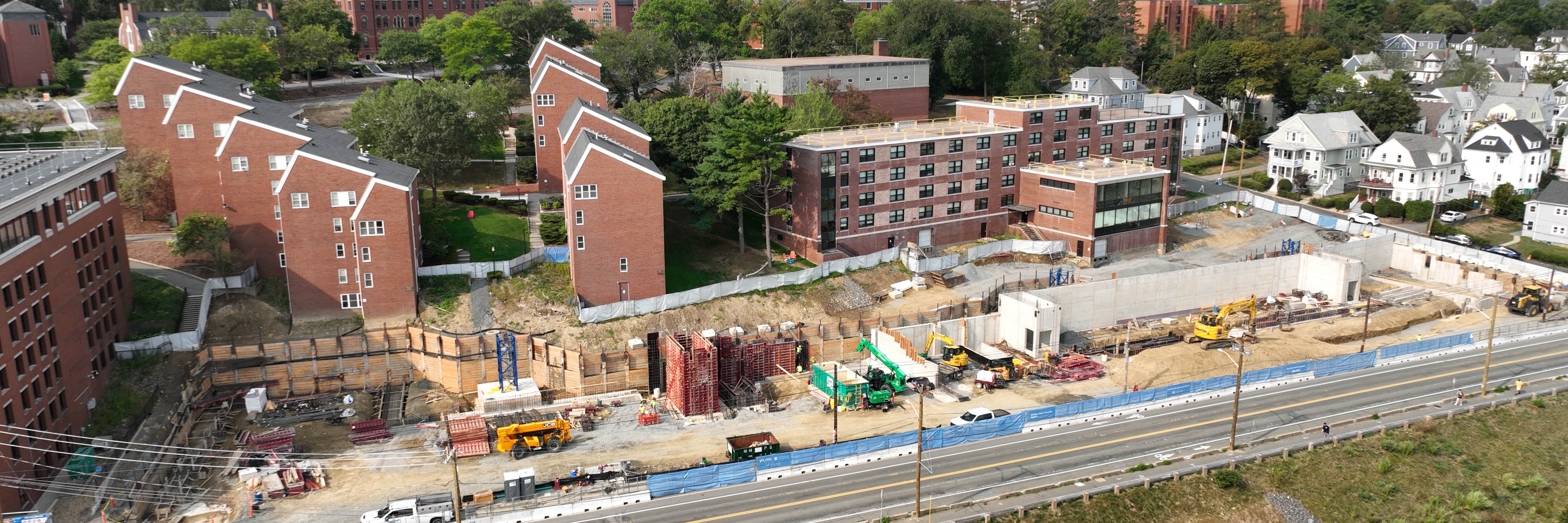Blog Posts
RES / The Benefits of Engaging in a Public-Private Partnership (P3) & Teaming with an Experienced Construction Manager on Your Next Student Housing Project

By Eric Greene, Vice President, Residential Group Manager
A Public-Private Partnership (P3) is a collaborative agreement between public and private sector entities to finance, design, construct, and operate projects that serve the public interest. These partnerships leverage the strengths of both sectors, combining public oversight and private sector expertise to deliver high-quality, cost-effective infrastructure and services.
P3s present several compelling advantages for colleges and universities when considering the construction of new student housing. Here’s why they can be a good strategic choice:
1. Access to Capital
P3s provide educational institutions with access to additional capital, helping to alleviate the financial burden. Private partners often supply upfront capital for design and construction, reducing the immediate need for college/university funding or debt issuance, and often minimizing the impact on its credit rating and balance sheet.
2. Risk Sharing
The risk associated with construction, operation, and maintenance is shared between the public and private sectors. Private partners typically assume more responsibility for these aspects, mitigating risks for the college/university.
3. Expertise & Innovation
Private partners bring specialized expertise in real estate development, construction management, and facility operations. This can lead to innovative design solutions, efficient project management, and potentially faster completion timelines.
4. Quality & Maintenance
Private partners often have a long-term interest in maintaining the quality and condition of the facilities to protect their investment. This can result in sufficient funding of repair and replacement reserves, which allows for better-maintained facilities over the long term compared to solely college/university-operated facilities (where reserves are sometimes allocated to other facility needs on the campus).
5. Revenue Generation
Some P3 agreements include revenue/surplus-sharing arrangements, where the university benefits financially from the operation of the housing facilities. This additional revenue can be reinvested into other educational priorities and capital improvements.
6. Flexibility in Design & Use
P3s offer flexibility in designing and repurposing student housing to meet the evolving needs and preferences of students over time. Private developers may have more experience in understanding market demand, nationwide trends, and student preferences.
7. Focus on Core Mission
By partnering with private entities for non-academic infrastructure projects like student housing, colleges/universities can focus more resources and attention on their core academic mission.
8. Speed of Delivery
P3s can expedite the development process compared to traditional public procurement methods, allowing colleges/universities to address urgent housing needs more quickly.
9. Community Benefits
Successful P3 projects can positively contribute to the local community by creating jobs during construction, supporting local businesses, and potentially enhancing the overall attractiveness of the area. Oftentimes, having more on-campus housing benefits the community by having more students living on campus, helping to avoid ‘town-gown conflicts’ in the adjacent neighborhoods.
With our deep institutional knowledge and proven track record in academic construction, Erland is currently supporting Tufts University and Capstone Development Partners with the development of a new dormitory through a public-private partnership. We’ve also successfully delivered the Storrs Center project for the University of Connecticut under a P3 model and contributed to the preconstruction phase of a similar effort for Clark University. These experiences reflect our ability to assist our partners with the unique challenges and opportunities that come with P3 developments.
By partnering with Erland, you gain a construction manager who understands the priorities of higher education, the dynamics of P3 delivery, and how to work in a developer-led structure. We’re committed to helping you realize your student housing goals—on time, within budget, and built to the highest standards of quality, safety, and long-term performance.
For any questions regarding this topic, please contact Eric Greene at egreene@erland.com.

